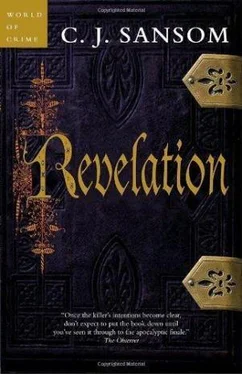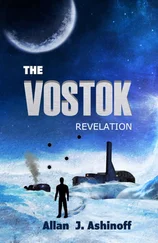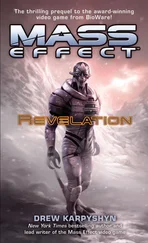'I think Matthew could be right. These deaths do fit exactly with Revelation 16, even to their sequence. And in these times when every apprentice believes himself an authority on scripture — yes, a man who was mad and vicious enough could believe he was inspired to fulfil the prophecy - for Revelation is, above all, a prophecy of what must come to pass.' He gave a sigh that was almost a groan.
I looked at him. Was he talking of possession again, a man's soul taken over by the devil?
Hertford had pulled a Testament from Cranmer's shelf and was reading it. He nodded slowly. 'He is right, my lord. These murders fit the pattern of the vials of wrath too closely to be any coincidence. But we may take a little comfort.'
'Comfort? How:' Cranmer asked incredulously.
'If the killer's purpose is to fulfil these prophecies, the fact that the second victim was Lord Latimer's doctor surely has no significance.' He looked at Cranmer. 'This is not aimed at the proposed marriage.'
Cranmer nodded slowly. 'Yes, that follows. But the King would still be horrified beyond measure if he knew.' He glanced at Harsnet. 'I think he too might see the killer as inspired by the devil, and turn away from any possible involvement with the lady Catherine.' He smiled sadly. 'He is so superstitious; I have tried for years to persuade him out of such false thinking, but without success.'
'Would His Majesty necessarily be wrong to think this was inspired by the devil:' Harsnet's keen eyes darted round the room. 'Consider the blasphemous pattern the killer is following, how cunningly he planned these three terrible displays, his uncanny ability to carry the bodies over great distances.'
'The cottar's murder was also intended for display,' I said. 'But it was blamed on a woman he had thrown out.'
'Does that not speak to you of a man possessed:' Harsnet asked.
'Why are you gospel men always so ready to cry possession:' Thomas Seymour snapped irritably. 'We should be catching this man, not wasting time on these speculations. We cannot know what he is until then.'
For once I agreed with Seymour. 'Sir Thomas speaks true, my lord,' I said. 'Catching him remains our priority.'
Cranmer looked to me. 'Well, Matthew, where would you go from here?'
'We must find out if this Tupholme had any acquaintances in common with Roger and the doctor—'
'Fie, man,' Sir Thomas said impatiently. 'He was a cottar, a nobody, and the others were gentlemen.'
'Tupholme and Roger had both held radical reformist views, though in different ways both had abandoned them. Was that also true of Dr Gurney?'
'Yes,' Cranmer said. 'He - he had once been very radical, but recently he had become — disillusioned.' He frowned for a long moment, then looked at me. 'You think the killer may be seeking men who were once religious radicals but abandoned that position for one reason or another?'
'I fear so. And there is one place where radicals of all classes meet. In church.'
'The three dead men did not live near each other,' Cranmer said. 'They cannot have attended the same parish churches.'
'Sometimes radicals go to church outside their parishes,' Hertford said. 'Run private Bible-reading and prayer groups. And why should they not?' he added with sudden fierceness. 'When they are persecuted and driven underground for their beliefs.'
'Are you suggesting it was one of the godly people who did this?' Harsnet asked me, looking me straight in the eye.
'Not necessarily. But certainly someone who knew the reformers.'
Archbishop Cranmer buried his face in his hands. Everyone fell silent; Hertford glanced uneasily at Harsnet. I realized the Archbishop was caught in the middle, between his own reforming beliefs and the dangers the radicals presented to the very existence of reform. Lord Hertford, I thought, saw this, but Harsnet for the moment was too caught up in his own outrage. Sir Thomas did not care one way or the other.
Cranmer lowered his hands again and sat up straight in his tall chair, his face set hard. He looked at me.
'Matthew, the danger to me, to everyone in this room, grows by the hour. Some of my staff are still being questioned for heresy, though they will find nothing, for they are not heretics. More butchers are being arrested. Now there is a talk of a purge of booksellers. The Earl of Surrey is in the Fleet prison for Lent-breaking. And you will have seen that plays and interludes with a reformist slant are being made targets, their posters pulled down.'
'Yes, my lord.'
Hertford nodded in agreement. 'We are hanging on by our finger- tips.'
'Can you imagine what a gift to Bonner and Gardiner this would be, someone murdering radicals who have backslid in London: This horrid blasphemy would be meat and drink for his cause.'
'I found one clue at the scene of Tupholme's murder,' I said. I produced the badge from my pocket and laid it on Cranmer's table.
Lord Hertford bent to study it closely. 'A pilgrim badge. The wearer went to St Edward the Confessor's shrine in Westminster Abbey. I saw enough of these badges on people's coats before the shrines were done away with.'
'It can't have come from Tupholme, if he was a reformer,' Harsnet said.
'Nor from his woman,' Thomas Seymour added. ‘I never heard of a Southwark whore that wore one of those.'
Cranmer took the badge, turned it between his thick fingers. 'So the killer dropped it. Perhaps it was torn from his coat as he struggled to tie that poor wretched cottar—'
'Hold fast,' Harsnet said. 'People don't wear pilgrim badges now. It marks you out as a Papist sympathizer.'
'Yes, it would be a defiant gesture,' I said.
'It could have been dropped deliberately,' Lord Hertford said.
'Yes, my lord,' I agreed. 'That is possible. But there may be another connection to the old religion.' I took a deep breath. 'Dwale was used to subdue at least two victims. And according to my friend Dr Malton, the only certain place dwale has been used in recent years is in the infirmaries of Benedictine monasteries. I wanted to ask you, my lord, whether I might make search among the Court of Augmentations records, to see what became of London's Benedictine infirmarians.'
Cranmer leaned forward. 'Could that be the explanation?' he asked eagerly. 'An ex-monk? A crazed, embittered papist making an example of men who were radicals once—'
'But is it not the radical godly men, not papists, who claim they understand the secrets of Revelation?' Again Sir Thomas surprised me with his perceptiveness.
'And perhaps these killings are to make an evil mockery of those very views,' Cranmer said. 'The papist church had its own students of Revelation, like Jonathan of Fiore.' His face lightened at the thought that the killer's religious motives might be conservative, not radical. He sat up, looked at us in turn. 'Master Harsnet, I want you to investigate whether the cottar had any links with the first two victims, especially through their religious affiliations. Matthew, look into the Court of Augmentations records. Edward.' He turned to Hertford. 'You are close to the King these days, I leave it to you to ensure no word of this comes near him.'
Hertford nodded. 'So long as no one here talks, I can do that.'
'And me?' Thomas Seymour asked.
'You, Thomas, keep your mouth shut,' his brother said.
Seymour reddened. Hertford turned to Cranmer. 'Well, so we investigate what has been done. But what of the future? If the lawyer here is right, and I believe he may well be, there will soon be a fourth killing.' He opened his Testament and read aloud: 'And the fourth angel poured out his vial upon the sun; and power was given unto him to burn men with heat of fire. And the men raged in great heat, and spoke evil of the name of God, which hath power over these plagues, and repented not.'
Читать дальше












